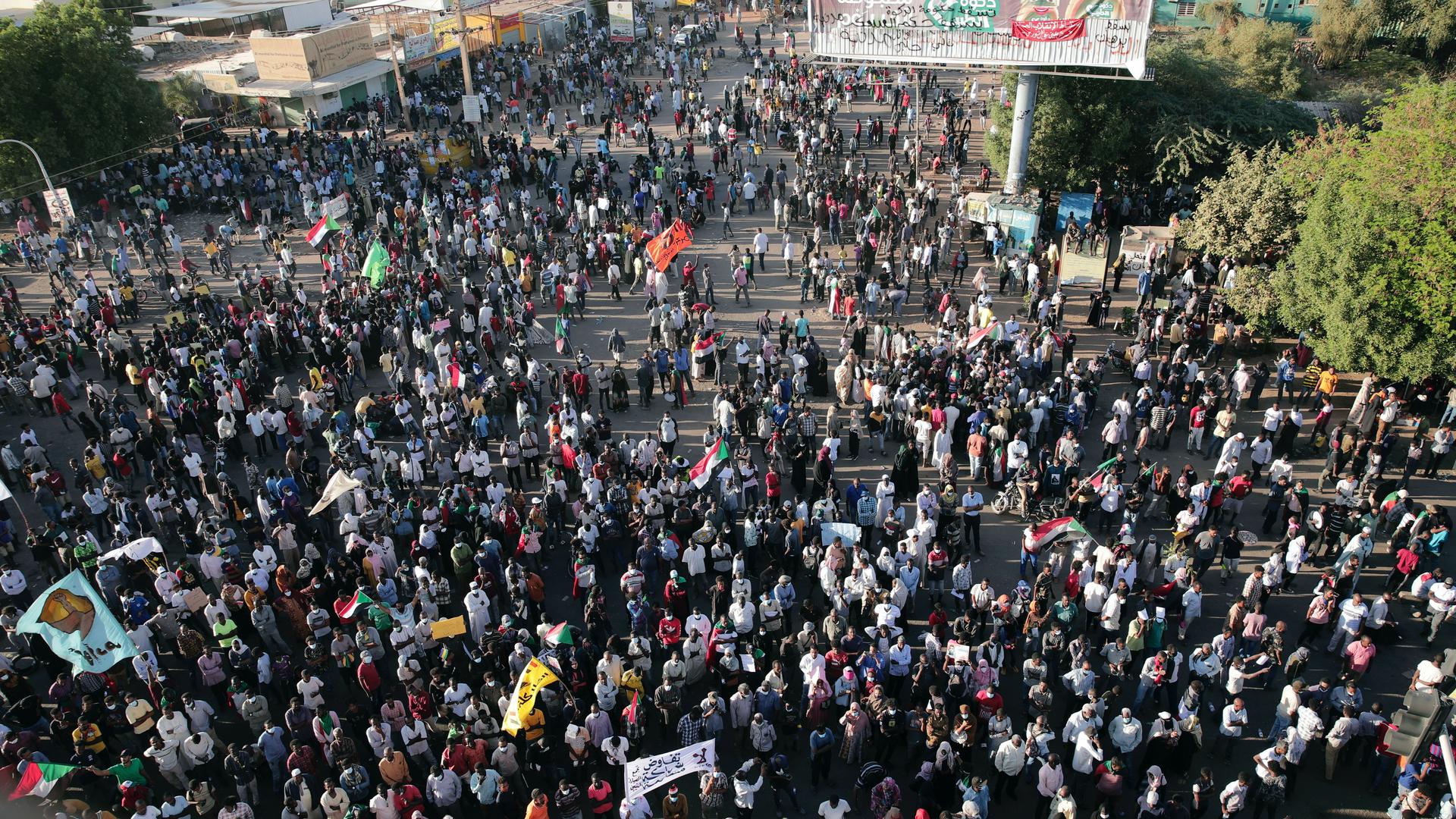Anti-coup protesters in Sudan say they won’t back down
On Tuesday, thousands of people took to the streets of Sudan’s capital, Khartoum, to protest military leaders who took over power in the country last month; dissolved the government; and deposed the civilian Prime Minister Abdalla Hamdok.
Related: Sudan’s civilian prime minister is reinstated weeks after military takeover
The air was filled with tear gas and the deafening blasts of sound grenades deployed by security officials seeking to stop the protesters’ march toward the presidential palace.
For more than a month now, Sudanese young and old across the country have been defying the military through such massive popular protests — undeterred by an aggressive security response that has left more than 40 people dead.
“We’re looking for the overthrowing of the military,” Enough is enough. It’s been 30 years that they’ve been doing this.”
“We’re looking for the overthrowing of the military,” said 25-year-old doctor and activist Maab Khalid during a recent demonstration in Khartoum. “Enough is enough. It’s been 30 years that they’ve been doing this.”
While Prime Minister Hamdok was reinstated last weekend in a new deal signed with coup leader Gen. Abdel Fattah al-Burhan, many in Sudan oppose any continued political partnership with the military.
“We are not satisfied by this deal. We don’t want al-Burhan,” said Abdelrahman Omar, a 20-year-old medical student who has also been protesting. “We just want a full civilian government, whether Hamdok included or not.”
Related: ‘Millions March’ protests planned across Sudan as military doubles down on power grab
Hamdok has repeatedly said that he signed the deal to end the bloodshed — and protect the social, economic and political gains that Sudan has made since 2019 when massive street protests forced dictator Bashir out of power.
“Taking into consideration the risks involved … The agreement was the only possible settlement [we] can reach” said Nabil Adib, a human rights lawyer in Khartoum who helped broker the deal.
The deal returns the country to a power-sharing arrangement between military and civilian leaders tasked with transitioning the country to democratic elections.
“What we saw clearly was that this transitional period needs both [the military and civilians ],” Adib continued.
Hamdok has also warned over the past year that fractures within the country’s security forces could lead to chaos.
“When the prime minister speaks about the danger of civil war, he was speaking about realistic danger,” Adib said.
But the deal excluded the broad coalition of political opposition parties, rebel groups and professional organizations who together made up the transitional military-civilian government that formed in 2019.
Now, many of them, along with former government ministers and political leaders, are calling for public outcry.
“I will go out again, and again, and again,” 24-year-old Mohamed Ahmed al-Tayib Ibrahim said from his hospital bed in Khartoum.
He was injured by a tear gas canister during a demonstration last Thursday.
“The Sudanese people don’t want military rule anymore,” Tayib said.
